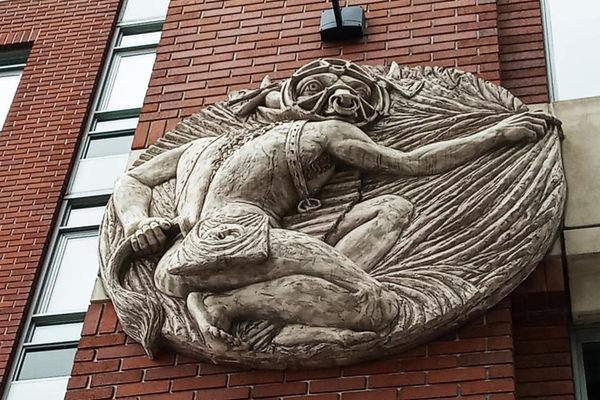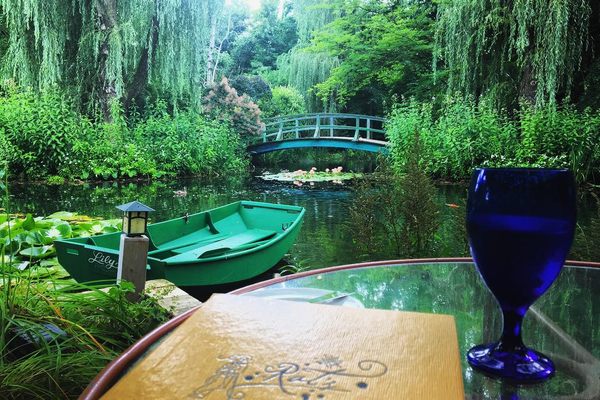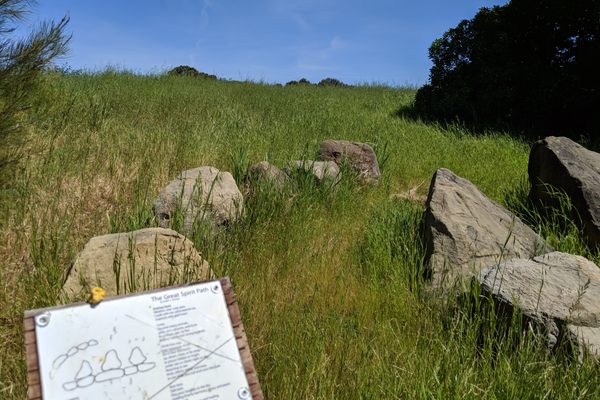About
Located within the Tuscarora Reservation, the Native American Museum of Art land is a priceless treasury of Iroquois culture and traditions. This unique art museum is an easily overlooked gem sitting smack-dab in the middle of Smokin' Joe's Trading Post, a Native-owned pit stop known for its cheap gas and tobacco, about 10 minutes from downtown Niagara Falls.
The museum, known as NAMA, was founded in 2000 by members of the Tuscarora tribe. The Tuscarora are part of the Six Nations Iroquois alliance that once inhabited much of present-day New York, and counts the Mohawk and Seneca among members. Much of that territory shifted, morphed, shrunk, and evaporated over the centuries. But Iroquois today thrive across western New York, and Native American culture anchors the iconography of Niagara Falls.
At the museum, you'll find reproductions of maps tracing the bounds of the Iroquois and other tribes, mapping their original lands before forced resettlement. There is also a fine-art collection of sculpture, paintings, and rare antiques. The highlight at NAMA is the permanent exhibit, which displays the soapstone carvings of renowned Tuscarora artist Joseph Jacobs.
Jacobs' pixel-precise sculptures carved from soapstone are breathtaking in detail and profound in depth, touching on elements of Iroquois society, myth, and local lore. His intricate work blends classical skill and provocative commentary, contrasting stark naked truth with exquisite embellishing texture.
In a piece called "Keeper of the Four Winds," Jacobs' knife liberates the tale of Iroquois spiritual being Gah-Hah, who controls the whim of nature. Astonishing plumes of white hair/ocean/cloud/fire bloom from the black soft face of Gah-Hah. Out of those astonishing plumes rises another Gah-Hah, and so forth.
Maybe most staggering is the incredibly ornate depiction of the famous Niagara Falls legend, "Maid of the Mist." The portrayal is a three-dimensional opus to sculpture, channeling multiple narrative themes in a carousel of storytelling. Like all the pieces, there is a brochure underneath explaining the significance of the artwork.
Related Tags
Know Before You Go
NAMA is open seven days a week and is free to the public. Audio-listening tours are also available.
Community Contributors
Added By
Published
March 26, 2019












































